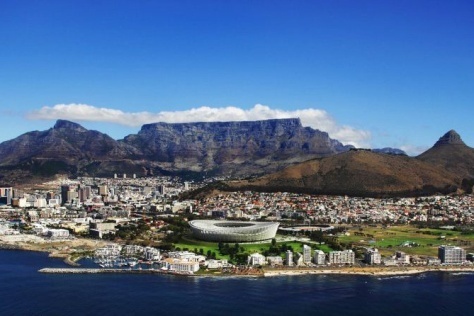
The City of Cape Town is currently the only major metropolitan municipality which has received four consecutive clean audits.
The City of Cape Town have pioneered transport-led urban development in order to reduce congestion and bring opportunities closer to where people reside.
Cape Town's Integrated Development Plan (IDP) 2012-2017 is the blue print that government developed in consultation with the public, in order to build A Caring City, A Well-run City, An Inclusive City, An Opportunity City and Safe City.
1. By the end of the 2015/16 financial year, Cape Town had installed more than 840 km of fibre-optic cabling.
2. A total of 301 City-owned buildings are connected to that network, including libraries, clinics, event venues and cash offices. (This has also enabled us to save more than R80 million a year, and to generate an income from the infrastructure by renting out extra capacity to the private sector.)
3. Cape Town have embarked on a program to retrofit 40,000 houses that were built without ceilings and waterproofing before 2004.
4. Cape Town have 215 Wi-Fi access points and 65 Smart Cape Wi-Fi zones being used by more than 250 000 people every day.
5. By 2015 Cape Town installed over 46,000 solar water heaters in the metro which have contributed R830 million to the economy, creating 1,300 jobs.
6. By June 2016, over 148,100 historic title deeds had been registered.
7. Cape Town issued 219,000 purchase orders to vendors who complied with broad-based black economic empowerment legislation to the value of R13,96 billion (92% of total purchase orders).
8. Cape Town also created 45,902 Expanded Public Works Programme job opportunities, bringing the total number of EPWP opportunities to 170,000 since 2011.
The specific city projects, initiatives and experience on water efficiency and sustainable management.
The City of Cape Town, which has in excess of 11,000 km of water mains and associated infrastructure (reservoirs, pump stations, water meters, valves, hydrants etc.), has established itself as a national leader in reducing water losses (as well as user demand) through its Water Conservation and Water Demand Management Programme. Water losses (which includes losses through leaks and bursts, as well as water ‘lost’ through meter tampering, general metering inaccuracies, and administrative errors) for the overall systems have been reduced from around 25% to below 15% (14,69 %) according to latest data. This is the effect of various interventions, including extensive water pipe replacements, extensive pressure management of the water supply system, and improved response times. These interventions have also reduced the burst rate from 63,9 bursts per 100 km of piping in the 2010/2011 financial year, to 31 bursts per 100 km according to the latest statistics, saving millions of litres of water in the process.
Cape Town haspioneered the Transit Orientated Development (TOD)Strategic Framework.
Cape Town has pioneered the Transit Orientated Development (TOD)Strategic Framework. In March 2016 Council adopted its Transit-Orientated Development (TOD) Strategic Framework which prescribes how new developments across Cape Town should address apartheid spatial inequality, urbanisation and the high cost of public transport, while also stimulating economic growth.The City has identified five projects in Bellville, Philippi East, Athlone, Paardevlei, and the Cape Town central business district (CBD) where Cape Town will either invest in the improvement of existing public transport infrastructure or provide new public transport infrastructure to ignite urban renewal, economic growth,and job creation in these areas.
The efforts in Cape Town on climate change mitigation and carbon emissions reduction, especially through the energy efficiency perspective.
Energy efficiency is a cornerstone of the Cape Town’s Energy2020 goal which aims to have 20% of our energy from renewable sources. Then Energy2040 Goal, also models a more resilient, lower carbon, resource-efficient and equitable future for Cape Town.The City of Cape Town is a major energy user in its own right and is committed to improving the management of energy use in all municipal operations, to improve resource efficiency, reduce its carbon footprint and save money.
The City has been implementing energy efficiency retrofit programmes within municipal operations since 2011, covering traffic lights, street lights, buildings and wastewater treatment plant retrofits. Rooftop solar photovoltaic systems are also installed where possible. The programme includes energy management training for facilities staff, behaviour change programmes for building users and smart driver training for the City’s fleet drivers.
An extensive data management system has been developed which aligns location, metering and billing data from smart meters and administrative systems –the overall data feeds through to managers, and the specific data to staff on the ground to improve building management. Display screens are being set up in building entrances to communicate the programme and the data to building users (both staff and the public). All of these activities fall under the Internal Resource Management Protocol which sets out a comprehensive plan for improved resource management across all departments. Savings and progress are reported annually to the City’s Finance Department.
